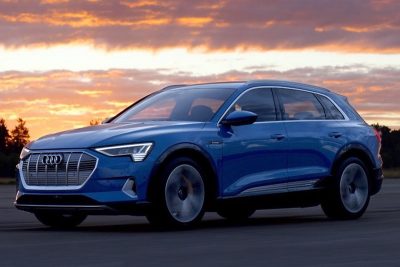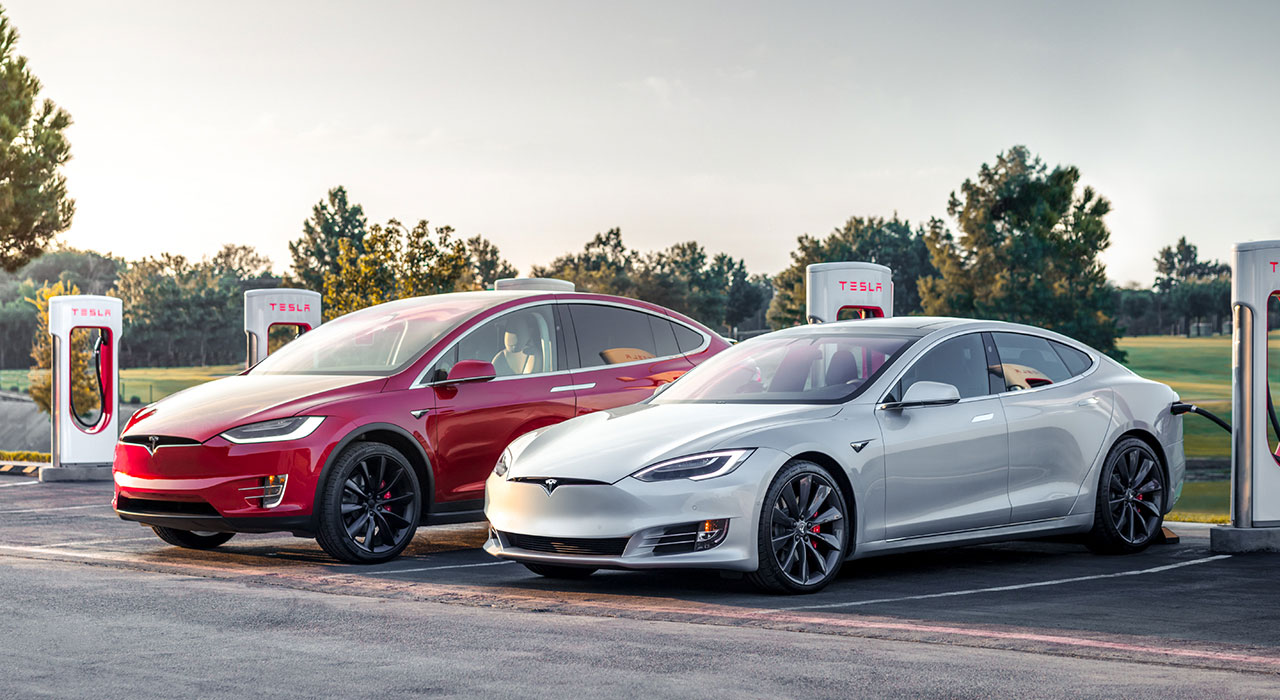In recent years and especially months, Tesla has grown into the most valuable automaker in the world in terms of market capitalization. Elon Musk’s company has outperformed traditional competitors thanks to bold innovations and lots of guts, but also with some help from competing manufacturers Toyota and Daimler, both of which had first-hand experience with the Tesla culture but failed to see its potential.
 Daimler is the parent company of Mercedes-Benz, and in 2009 the Germans invested 50 million Euros in Musk’s startup, which gave them almost 10% of its shares. They thought that Tesla had a chance of becoming big with electric cars. Musk has repeatedly stated in recent years that Tesla would not have survived without the help of Daimler. The move gave Daimler an insight into how the Tesla CEO operated: he was willing to bring to market technology that was not yet perfect, then improve it by sending continuous over-the-air digital updates. In the early days profitability was of lesser concern than speed to market. They just wanted to get as many cars as possible on the road to gather data with which to improve their technology.
Daimler is the parent company of Mercedes-Benz, and in 2009 the Germans invested 50 million Euros in Musk’s startup, which gave them almost 10% of its shares. They thought that Tesla had a chance of becoming big with electric cars. Musk has repeatedly stated in recent years that Tesla would not have survived without the help of Daimler. The move gave Daimler an insight into how the Tesla CEO operated: he was willing to bring to market technology that was not yet perfect, then improve it by sending continuous over-the-air digital updates. In the early days profitability was of lesser concern than speed to market. They just wanted to get as many cars as possible on the road to gather data with which to improve their technology.
German traditional approach clashed with Tesla’s innovative way of working
After acquiring the stake, the Germans helped Tesla bring the Model S to market. In return, Daimler gained access to the technology that Tesla incorporated into the vehicles. Their battery technology was reflected in the pre-production copies of the Smart Fortwo Electric Drive, while the electric drive expertise was used in development of the Mercedes-Benz B-Class Electric Drive.
 Nevertheless, in 2014 the German car manufacturer decided to sell its shareholdings in Tesla. They were in doubt as to whether the American company’s way of working could ever be widely practiced. The German traditional approach to research and development relies on testing until perfection, making sure all possible issues have been detected and cleared before they go into the hands of consumers. This approach clashed with the Americans’ progressive way of working and thinking, which focused on radical ideas and rapid innovation, where user interface and user experience was of higher priority than quality. Had Daimler held their shares, they would now have been worth $ 7.4 billion (about 6.3 billion Euros), according to calculations by Bloomberg earlier this month.
Nevertheless, in 2014 the German car manufacturer decided to sell its shareholdings in Tesla. They were in doubt as to whether the American company’s way of working could ever be widely practiced. The German traditional approach to research and development relies on testing until perfection, making sure all possible issues have been detected and cleared before they go into the hands of consumers. This approach clashed with the Americans’ progressive way of working and thinking, which focused on radical ideas and rapid innovation, where user interface and user experience was of higher priority than quality. Had Daimler held their shares, they would now have been worth $ 7.4 billion (about 6.3 billion Euros), according to calculations by Bloomberg earlier this month.
Toyota came to the same conclusion
Simultaneously, Toyota started a partnership with Tesla as well. They decided to develop a new model together in 2010. Tesla supplied the electric powertrain system including a battery, charging system, inverter, motor, gearbox and associated software for the second generation Toyota RAV4 EV. The Japanese were very impressed by the speed with which Tesla developed the technology, but they quickly came to the same conclusion as Daimler: the Americans’ approach would not be suitable for mass production because it could not meet Toyota’s high standards for safety and durability.
 Despite this, Musk decided to continue with his way of working, although it would take years of losses before the company would finally find a way to profitability. Partly due to the diesel scandal, the popularity of electric driving has taken a leap, from which Tesla benefited. Sales figures have increased dramatically in recent years and investors have become increasingly enthusiastic. They now rate Tesla higher than Daimler. Tesla is currently worth around $ 300 billion, while Daimler is worth less than $ 50 billion on the stock exchange. This is in no way a reflection of their vehicle sales: Mercedes-Benz, responsible for approximately 50% of Daimler’s turnover, sold more than 2.3 million cars in 2019. Tesla delivered about 367,500.
Despite this, Musk decided to continue with his way of working, although it would take years of losses before the company would finally find a way to profitability. Partly due to the diesel scandal, the popularity of electric driving has taken a leap, from which Tesla benefited. Sales figures have increased dramatically in recent years and investors have become increasingly enthusiastic. They now rate Tesla higher than Daimler. Tesla is currently worth around $ 300 billion, while Daimler is worth less than $ 50 billion on the stock exchange. This is in no way a reflection of their vehicle sales: Mercedes-Benz, responsible for approximately 50% of Daimler’s turnover, sold more than 2.3 million cars in 2019. Tesla delivered about 367,500.
As Tesla learns mass production, others are catching up on EV tech
But the valuation is not just a reflection of the current sales figures. Sure, Tesla has left all other automakers in the dust when it comes to electric vehicle sales. But its early mover advantage has made them a fan favorite, an image impossible to replicate by traditional automakers. Tesla’s early adopters have been very forgiving in regards to quality flaws, just because the user experience was miles ahead of what they were used to. As Tesla is learning the ropes of mass production, other automakers are still playing catch up in terms of EV technology.  Will they succeed?
Will they succeed?
So far, sales figures are showing Tesla is still way ahead of the rest. In the US, Tesla sold approximately 65,000 cars in the first half of 2020. In that same period, Audi sold fewer than 2,900 copies of its e-tron SUV, Mercedes-Benz has delayed the launch of its EQC crossover and the best selling non-Tesla EV is the Chevrolet Bolt with less than 8,400 deliveries. In Europe, the competition is a bit more tough but Tesla is still one of the biggest players. And the same can be said of China, where the Model 3 has consistently been the best selling EV by a large margin since local production started in the beginning of this year.
China has long stimulated its domestic EV industry with heavy subsidies, hoping to create an industry strong and advanced enough to take on global competitors in worldwide markets. In its vision, China’s automotive industry would be able to capitalize on a shift from ICE to EVs, a market where brand image would be of lesser importance than having the right technology, as Tesla has clearly demonstrated. That’s what makes it even more painful for the Chinese to now see that even the country’s own consumers prefer to shill out the extra cash for an American product compared to that of a domestic brand.
Which Tesla fighter can make it to the championship match?
 So if traditional automakers are struggling to catch up with Tesla, what about other EV startups? Rivian seems to have a real shot at bringing a competitive product to market and is backed by Amazon, Ford and other investors. It expects to bring an electric pickup and SUV to market next year, both of which are claimed to have a range of up to 400 miles. Coming even sooner is Polestar, a brand owned by Volvo and Volvo’s Chinese parent, Zhejiang Geely Holding. The Polestar 2 is a crossover liftback with a range of up to 275 miles and Tesla-like performance claims that should appeal to enthusiasts. In China, NIO sales are finally starting to pace up and Xpeng just launched its P7 sedan, aimed squarely at the Model 3 with similar performance and range stats, and it looks pretty sleek as well. However, at just a 20-25% discount on Tesla pricing, this domestic startup brand will have a hard time convincing buyers not to go for the import brand image of the original disruptor. In its first two months, fewer than 500 units of the P7 were delivered to dealers, compared to 14,000 copies of the Model 3. Many others have failed miserably, as Faraday Future, Bordrin, Byton and Saleen all had grand visions of becoming Tesla fighters, but each of them has already failed or is on the verge of collapse.
So if traditional automakers are struggling to catch up with Tesla, what about other EV startups? Rivian seems to have a real shot at bringing a competitive product to market and is backed by Amazon, Ford and other investors. It expects to bring an electric pickup and SUV to market next year, both of which are claimed to have a range of up to 400 miles. Coming even sooner is Polestar, a brand owned by Volvo and Volvo’s Chinese parent, Zhejiang Geely Holding. The Polestar 2 is a crossover liftback with a range of up to 275 miles and Tesla-like performance claims that should appeal to enthusiasts. In China, NIO sales are finally starting to pace up and Xpeng just launched its P7 sedan, aimed squarely at the Model 3 with similar performance and range stats, and it looks pretty sleek as well. However, at just a 20-25% discount on Tesla pricing, this domestic startup brand will have a hard time convincing buyers not to go for the import brand image of the original disruptor. In its first two months, fewer than 500 units of the P7 were delivered to dealers, compared to 14,000 copies of the Model 3. Many others have failed miserably, as Faraday Future, Bordrin, Byton and Saleen all had grand visions of becoming Tesla fighters, but each of them has already failed or is on the verge of collapse.
And even if Rivian, Polestar, Nio, Xpeng or any of the traditional automakers manages to launch vehicles that challenge or even beat Tesla in terms of specifications, the Californian brand has one more ace up its sleeve: its proprietary Supercharger network that solves one of the main issues holding back EV adoptions.
What do you think of Tesla’s market valuation, bonkers or does it make sense? And who will be best positioned to challenge the brand, one of the traditional automakers or another start-up challenger?


